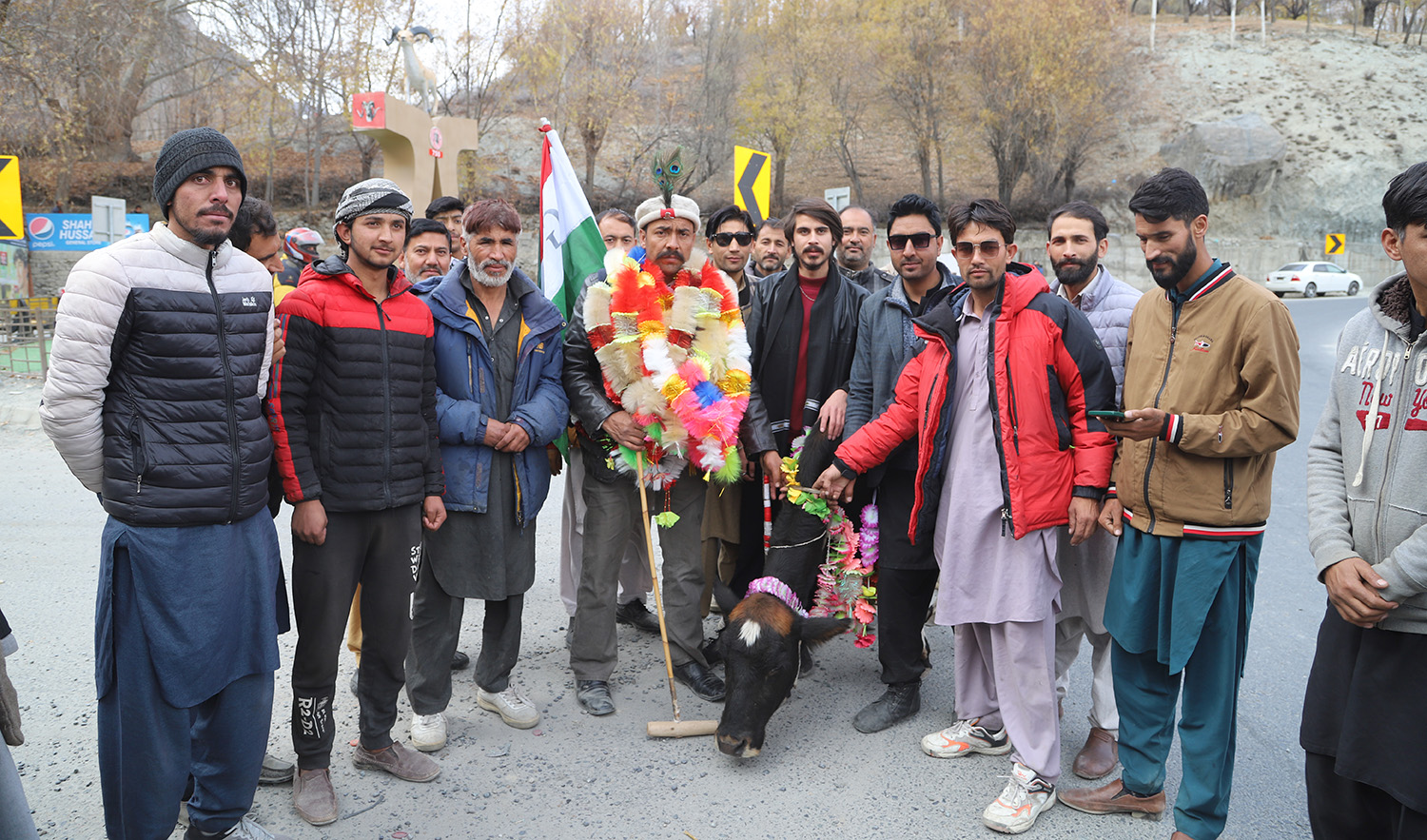SKARDU, Gilgit-Baltistan: Musa Ali started his 900-kilometer-long journey on Nov. 13 and has a “unique” goal: to ride on horseback from his village in Pakistan’s remote mountainous north to the national capital, Islamabad, to raise awareness about glacial melt.
Outside the polar region, Pakistan is the country with the highest number of glaciers in the world. However, a combination of climate change and air pollution has significantly contributed to the rapid melting of the South Asian nation’s glaciers, causing devastating floods that last year killed over 1,700 people and caused billions in losses to Pakistan’s economy.
According to the United Nations Development Program (UNDP), over 3,000 lakes had formed by 2018 due to melting glaciers in the northern Gilgit-Baltistan and northwestern Khyber Pakhtunkhwa regions of Pakistan. At least 33 of these lakes are considered at risk of flooding, posing a serious threat to over seven million people residing downstream.
To raise alarm about the situation, 40-year-old Ali, a polo player and retired army soldier, set out on horseback from his hometown of Gulshan-e-Kabir, a village near the Siachen border, traveling on the Juglot-Skardu Road and Karakoram Highway and covering up to 40 kilometers daily to be able to reach Islamabad in time for International Mountain Day on December 11.
“No one travels [on horse nowadays], maybe our grandfather had done this. So, just for a reminder and to give a message to the future generation, I decided to travel on horseback,” Ali told Arab News, explaining his mission.
“Due to the air pollution in the city and due to the smoke of vehicles and factories, our glaciers are melting. That’s why I decided to ride on horseback, so on the eve of International Mountain Day, I will give the message in Islamabad that GB has the potential of tourism but is vulnerable to climate change impacts.”

Pakistani retired army soldier and polo player Musa Ali poses for a group photograph at JSR junction near Kachura village of Skardu, Gilgit-Baltistan, Pakistan on November 18, 2023. (AN photo)
On his journey, Ali has crossed Khaplu Valley, passing by some of the most breathtaking landscapes in the northern region and a mosque that is believed to be 700 years old. He said he had covered meandering routes shrouded with autumn leaves and was now traversing a path along the mighty Indus River, surrounded by lofty mountains.
“I met different people during this week, including politicians, social activists, shopkeepers and businessmen,” he said. “Many of these people stopped me to take photographs.”
Ali said he had not received any support from the government to carry out his novel venture.
“Only a few people have contributed some cash to help me cover the expense of my journey,” the polo player added.
Along the way, Ali, who also wants to promote tourism in his picturesque Gilgit-Baltistan, said he was warmly received by people in bazaars, hotels and on the roadsides.
“People at different places have also offered me free meals and hotel owners have not been charging me for my stay,” he said.
“I can’t believe the love shown by the people. I am thankful to every person.”















